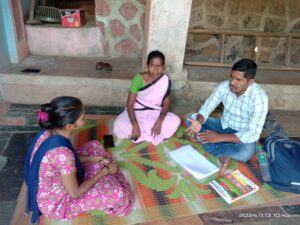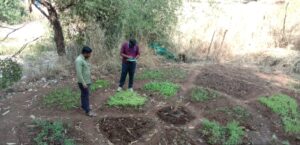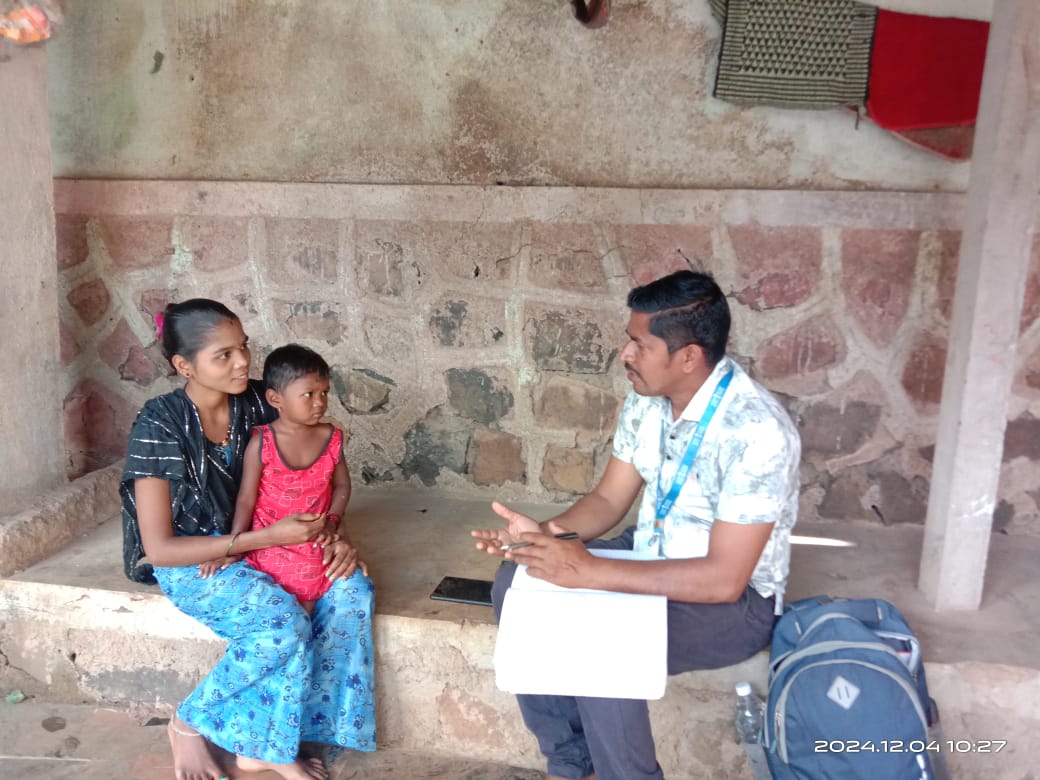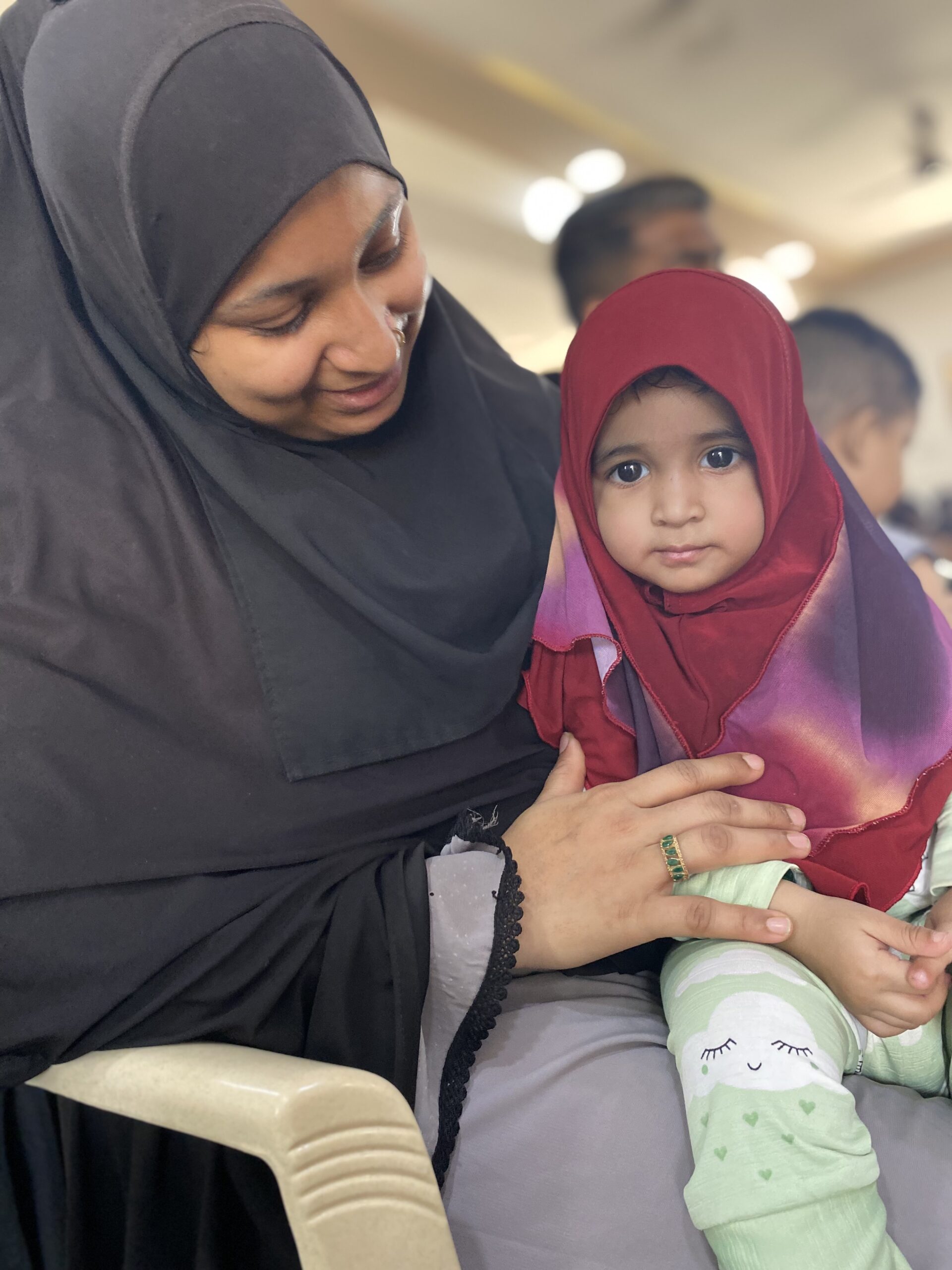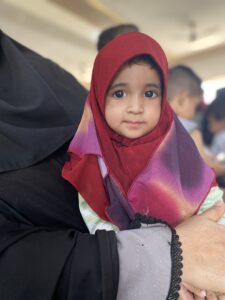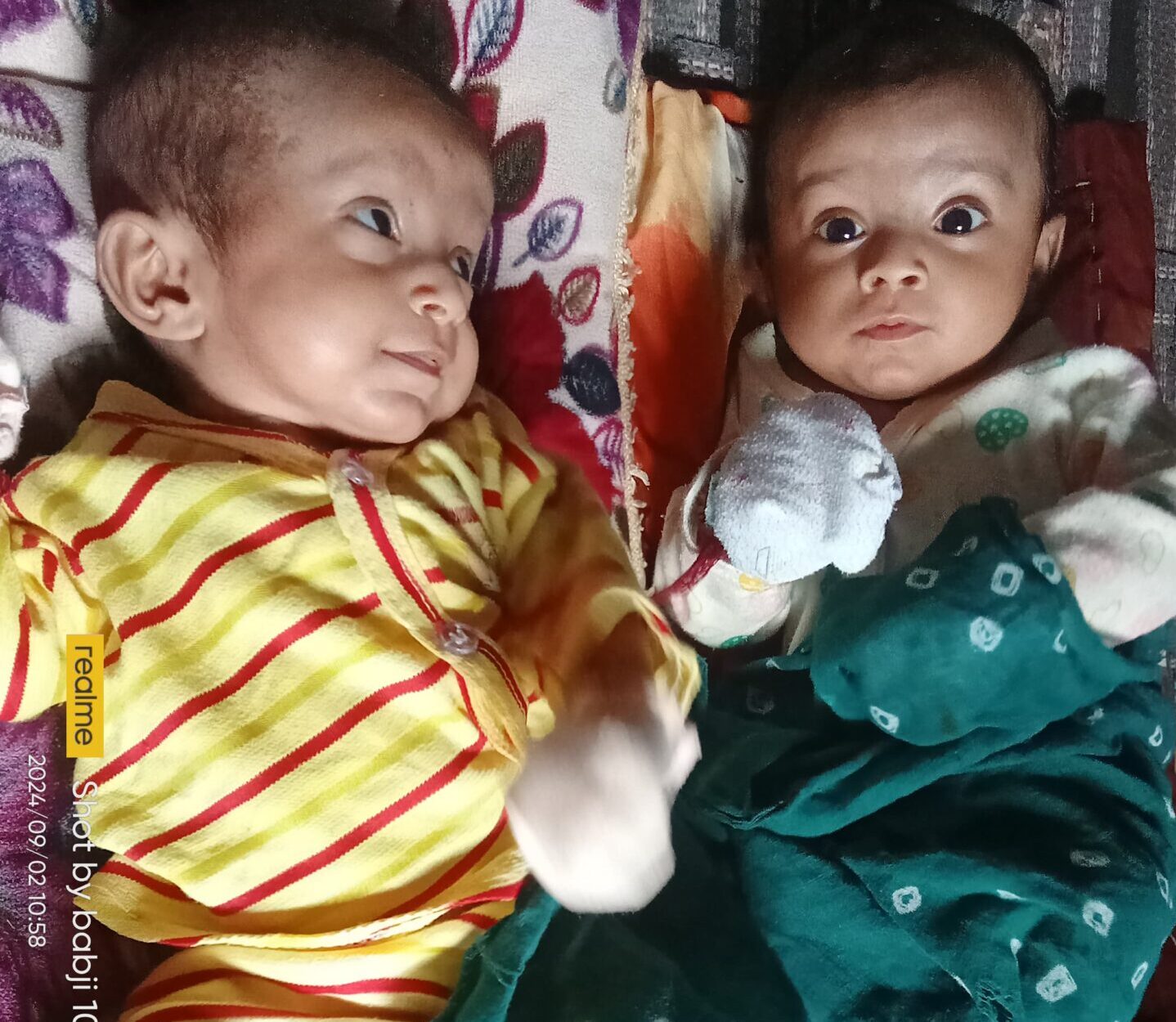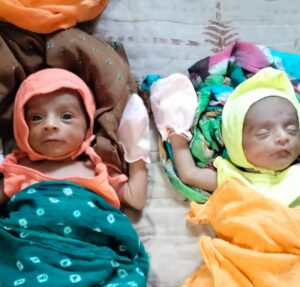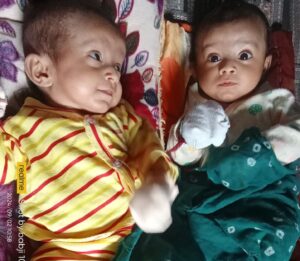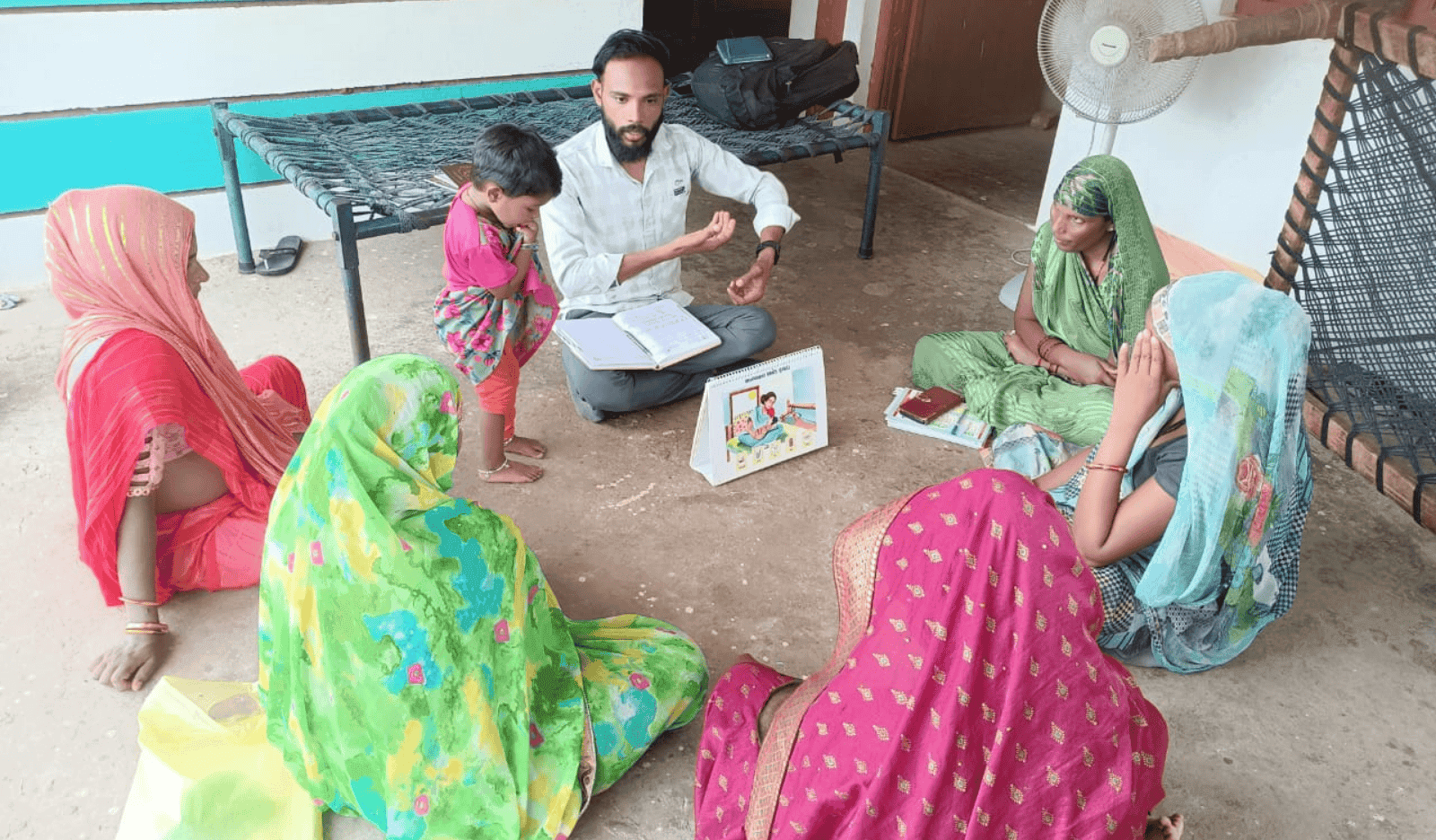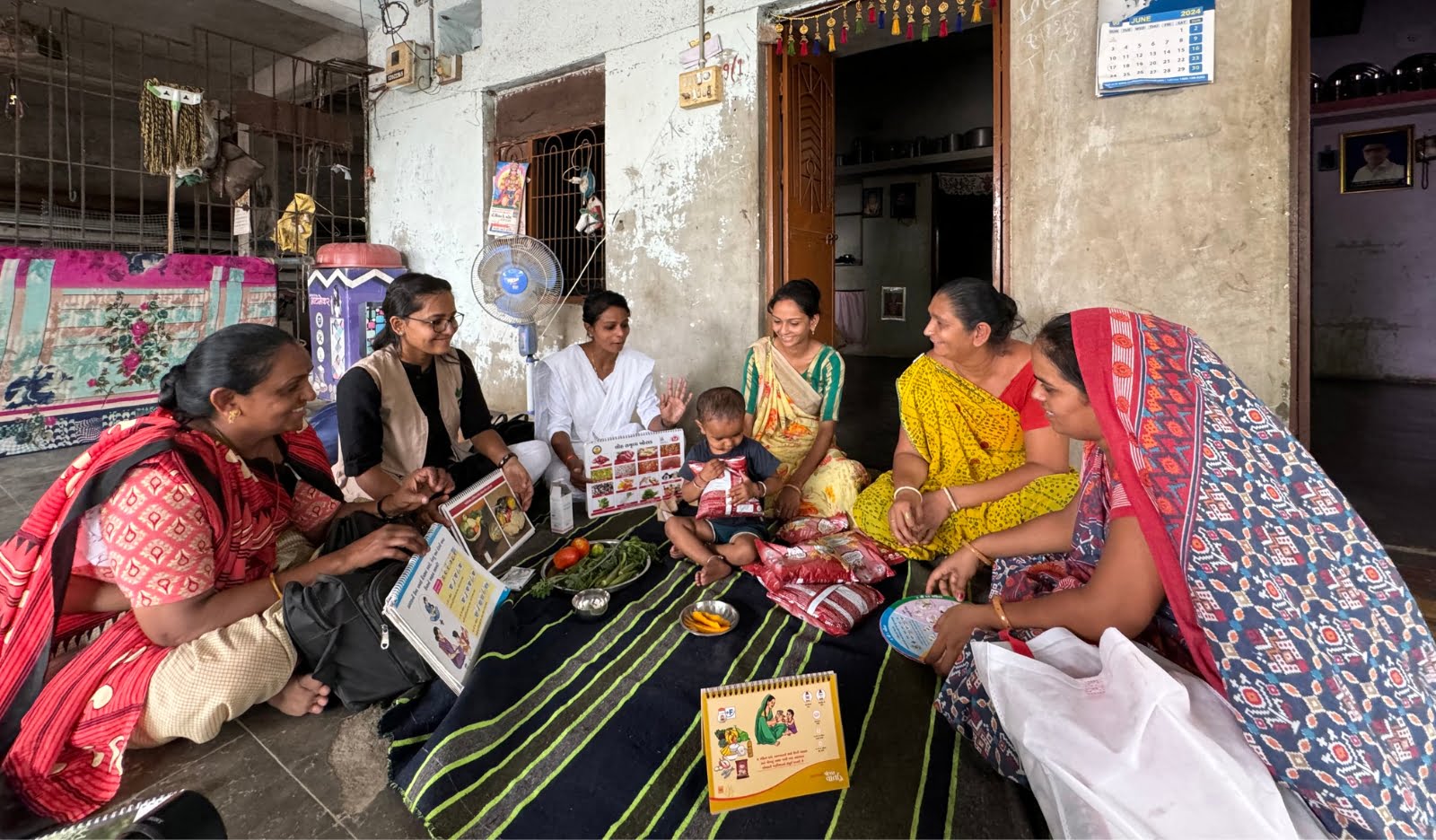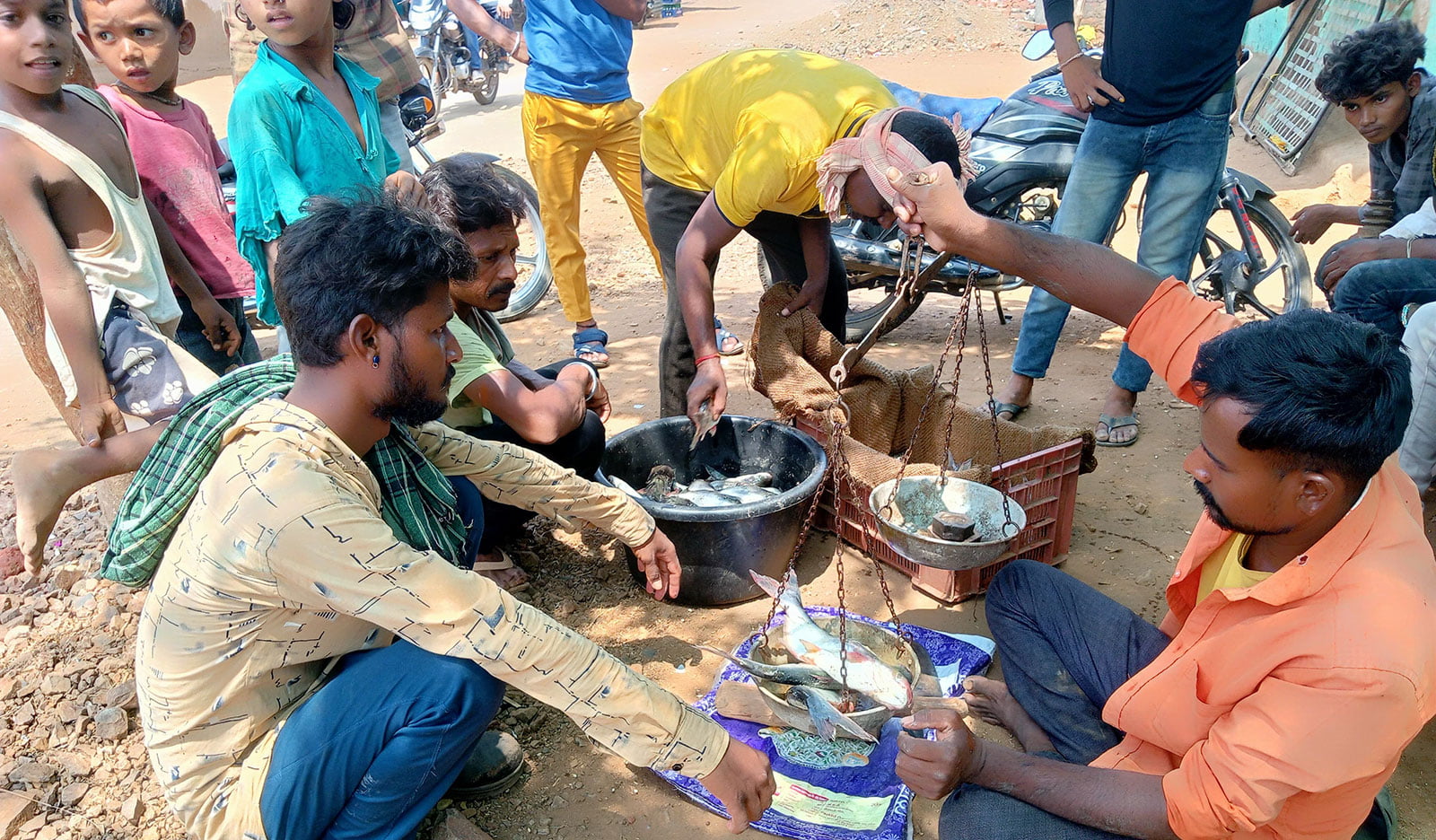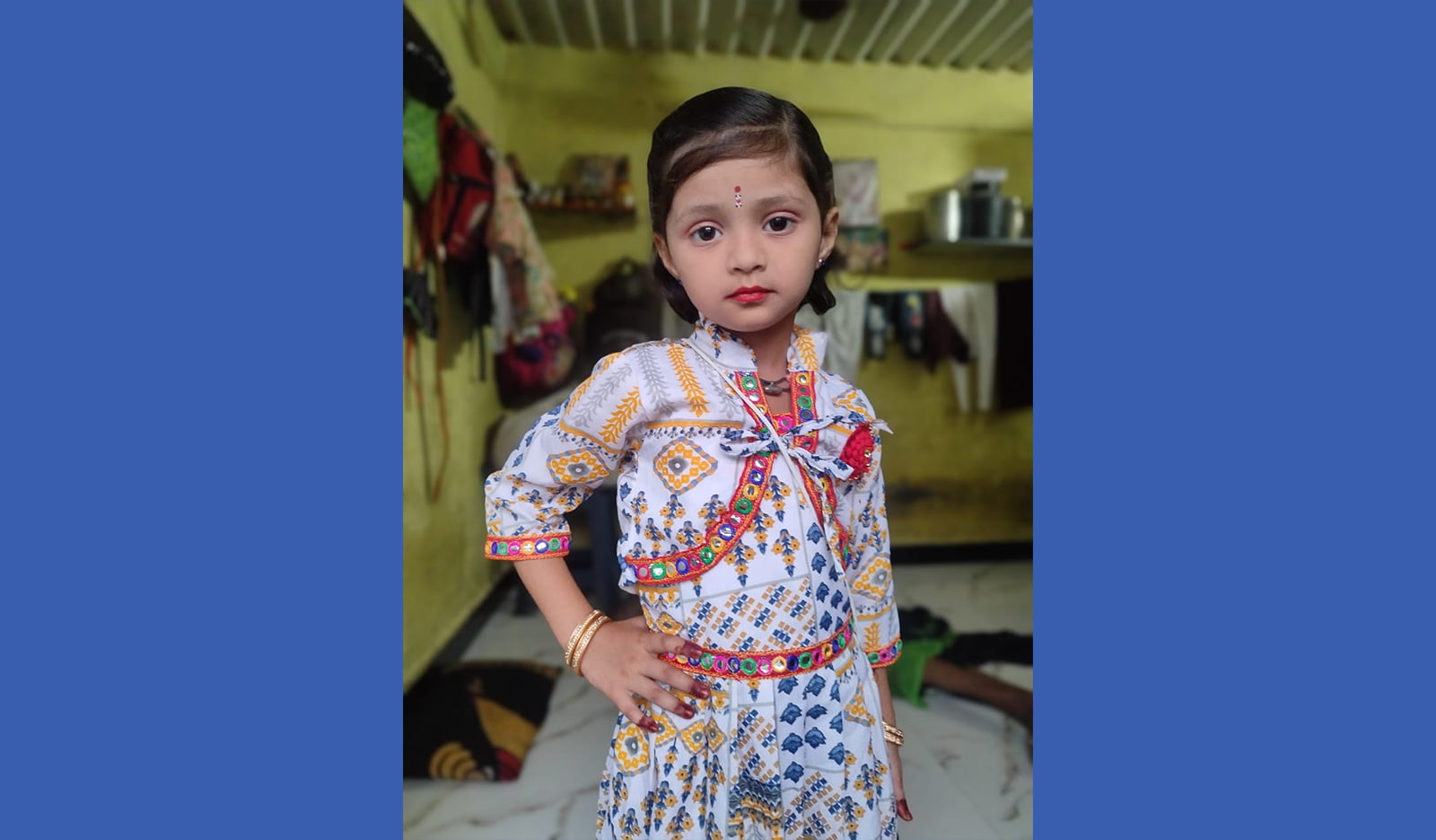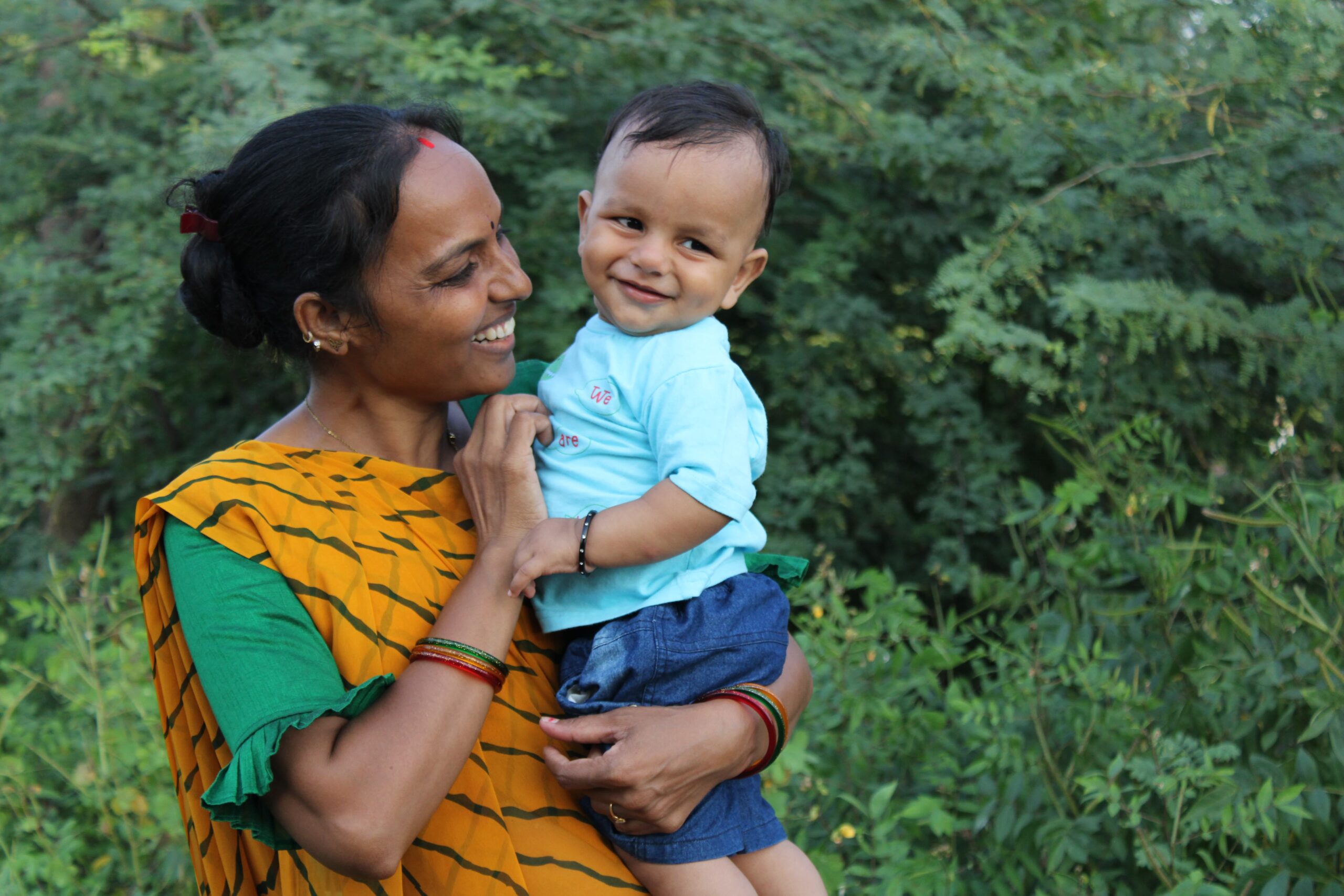In Malpur village of Vadali block in Sabarkantha, a Community Based Event (CBE) called “Mamta Divas” was taking place, dedicated to maternal and child health. Alongside Community Health Officers (CHO) and Frontline Workers (FLWs), the team from Project Vruddhi — an initiative of Action Against Hunger — participated in supportive supervision during this event.
Fanika Panchal (name changed), a pregnant woman, attended the event. During the counseling session, the team identified that Fanika, who was three months pregnant, weighed only 32 kg. Alarmed by her low weight, the Accredited Social Health Activist (ASHA) explained the importance of a balanced diet and proper medication to her. They planned a joint home visit with the Project Vruddhi team to provide further support and guidance.
When the team visited Fanika at her home, she was hesitant. “I eat enough; I don’t want to increase my weight,” she said defensively. She mentioned eating home-cooked food, including vegetables, but seemed unconvinced about the necessity of weight gain. Despite her reluctance, the team left, hoping to build trust over time. During the next visit, it was discovered that she had been taking calcium and iron tablets together, unaware that this could hinder their absorption. The team advised her to take them at different times, with a gap of four hours, and to include Vitamin C-rich foods to enhance absorption.
During a subsequent home visit, Fanika opened up more. She shared a heartbreaking story: a year after her marriage, she had lost a child. At that time, her weight had not significantly increased, and she feared a similar outcome in this pregnancy. Her fear consumed her, casting a shadow over her hopes. The team comforted her and motivated her to follow a balanced diet and medication regimen. Initially, Fanika’s hemoglobin (HB) level was low at 8.5 g/dl in her first trimester. However, with the support and guidance she received, she gained a glimmer of hope that her HB could improve. This newfound confidence fueled her commitment to follow health advice diligently.
To provide additional support, Fanika was invited to participate in breastfeeding awareness week by Project Vruddhi in August 2022. The FLWs and Project Vruddhi team also invited her to an Anganwadi Center (AWC) to celebrate her baby shower during ‘Suposhan Divas’, marking the start of her seventh month of pregnancy.
When the time came for her delivery, Fanika’s hemoglobin had improved to 11 g/dl, and her weight had increased to 43.2 kg. However, when she delivered a girl child on 18/12/2022, the baby weighed 1.9 kg, categorized as Low Birth Weight (LBW) and a Severely Acuta Malnourished(SAM) child. Despite these challenges, with improved hemoglobin levels, increased weight, and continuous support, Fanika developed trust in the Project Vruddhi team and FLWs.
Post-delivery, she took the initiative to call the ASHA for help with her newborn- Chandni (name changed). The ASHA worker informed Project Vruddhi’s team. Both the ASHA worker and Anganwadi Worker (AWW), along with the Female Health Worker (FHW) in their catchment, have received technical support from Project Vruddhi and participated in trainings on maternal anemia, breastfeeding, and complementary feeding under the first 1000 days of life model.
The FLWs and Project Vruddhi team sensitized Fanika on Exclusive Breastfeeding (EBF), providing demonstrations on positioning and latching, as she expressed concerns about the baby’s ability to suckle well.
The team also explained and motivated Fanika and her family members on Kangaroo Mother Care (KMC). They provided continuous support to her family. When the child was six months old, they also helped Fanika and her family initiate Complementary Feeding (CF). The family was guided on diet diversity, quantity, and consistency. The Anganwadi Worker (AWW) also gave Fanika Baalshakti – THR (Take Home Ration) and shared different recipes that could be made from it. Her family was invited to attend a Poshan Chaupal, a nutrition meeting for the community involving husbands and other family caretakers, in September 2023. These meetings, along with several home visits, were designed to educate and empower families about maternal and child health.


Through persistent efforts and dedicated care, Fanika’s daughter Chandni, who once a SAM child, began to thrive. When Chandni was 4 months old, she weighed 4.8 kg, which means she progressed from SAM to Moderately Acute Malnourished (MAM) status. By the time she turned seven months old, she had progressed to being a healthy child, weighing 6.2 kg. Currently, Chandni is one and a half years old and weighs a healthy 9.600 kg. This transformation has brought immense relief and joy to Fanika and her family.
Reflecting on her journey, Fanika felt empowered and more knowledgeable about maternal and child health. She was determined to take even better care during her next pregnancy, armed with the confidence and experience she had gained.
Fanika’s story is a testament to the power of community support, proper counseling, and the unwavering dedication of health workers. It highlights the impact of initiatives like Project Vruddhi in transforming lives and fostering hope in the face of adversity.
